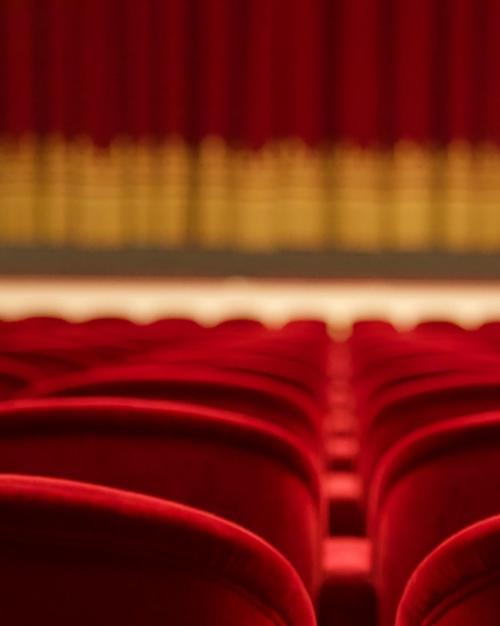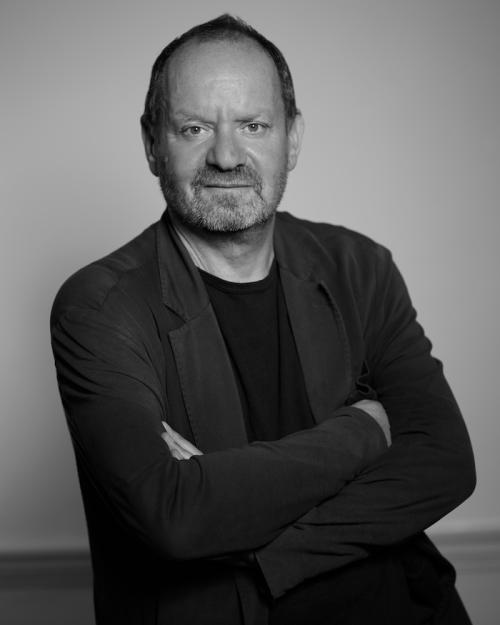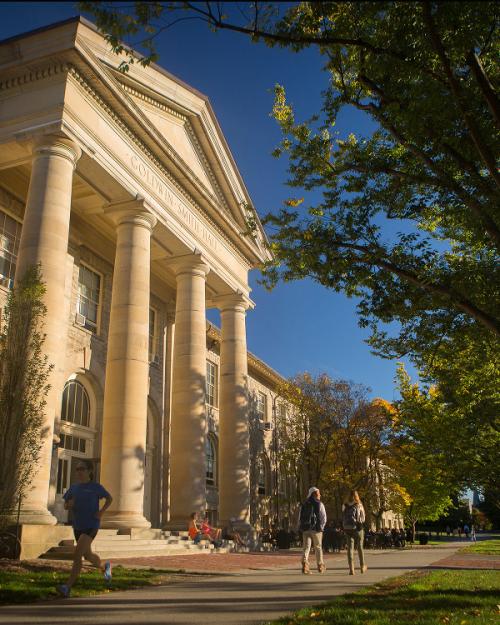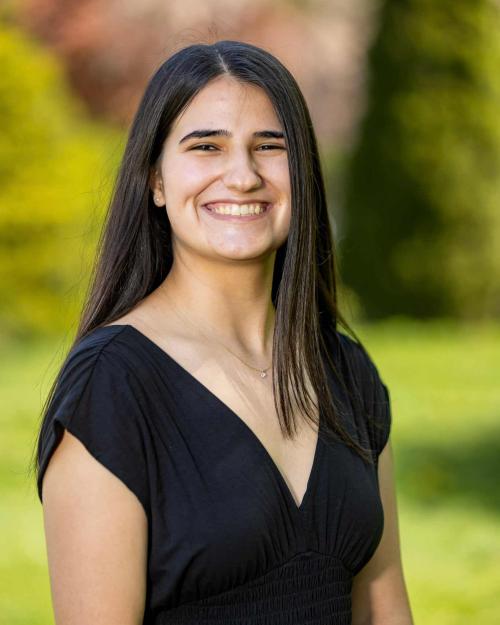Julia Nagel
English
Wilmette, Ill.
What was your favorite class and why?
The depth and breadth of courses I've been able to take at Cornell has been truly staggering. I've studied Black ecoliterature, culinary science, mushrooms and fungi, Shakespeare, the history of photography, global water sustainability, Native American fiction, horticulture, wines and Icelandic sagas, to name just a few.
What is your main extracurricular activity and why is it important to you?
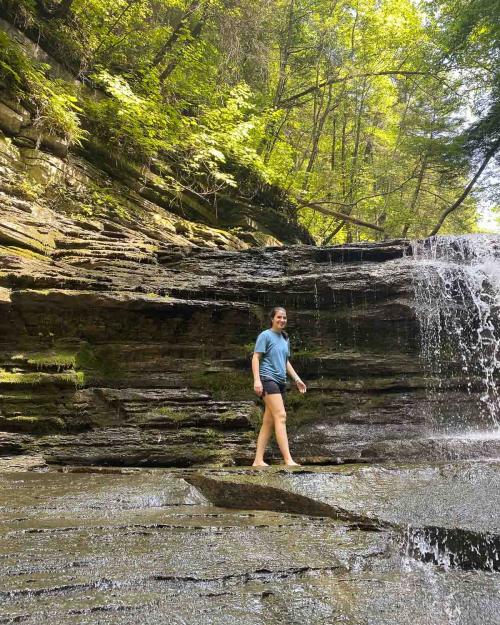
Well before I stepped foot on Cornell's campus, I knew I wanted to join The Cornell Daily Sun and contribute to its longstanding legacy of independent student journalism. I worked for my school's paper in high school, so continuing this passion in college was a natural choice for me. For the past two years, I've been the photography editor at The Sun, and the year before that, I was the assistant photography editor. Leading the department was demanding, yet it proved to be one of the most fulfilling experiences of my undergraduate career — pushing me beyond my comfort zone and honing my leadership and storytelling abilities. Not to mention that I've made some amazing friends through The Sun, as well. My involvement with The Sun has allowed me to explore corners of campus and Ithaca that I might otherwise have overlooked; I've ventured to the top of the clock tower, the Johnson Museum, nearby waterfalls, Gourdlandia and the Ithaca Fire Department to take photos. I've met and photographed President Martha Pollack, Congressman Chuck Schumer, and President of Iceland Guðni Jóhannesson. And of course, the added perk of rink-side access to Cornell's Men's Hockey games, courtesy of a press pass, has been an unforgettable experience.
What have you accomplished as a Cornell student that you are most proud of?
As part of the Humanities Scholars Program, I have spent the past year or so developing, researching and writing an interdisciplinary capstone project. My research sits at the intersection between English, art history and visual studies. More specifically, I have explored how photographs communicate by examining a single image — Migrant Mother by Dorothea Lange. In my research, I explore how Migrant Mother has become a myth and a symbol, some of the misconceptions/misunderstandings surrounding the photograph, as well as how it has been disseminated in the decades since it was taken in 1936. I'm grateful for the support that I received from HSP, because I don't know that I would have been able to take on such a monumental project without the assistance and encouragement I received from faculty and peers in the program.
How have your beliefs or perspectives changed since you first arrived at Cornell?
One of the often dreaded Arts & Sciences distribution requirements is the language requirement. Coming into Cornell, I certainly dreaded it because learning a new language is something I find quite challenging. What started as a mandatory obligation, however, soon became one of the most enriching experiences of my college journey; I ended up taking four semesters of Portuguese classes because I enjoyed it so much. When my grandma was around my age, she immigrated to the United States from Brazil, but she never passed along her knowledge of Portuguese to my father or myself. She passed away before I came to Cornell. Because of this, taking Portuguese classes became a way for me to bridge that gap, to honor my heritage, and to forge a deeper connection with my grandmother.
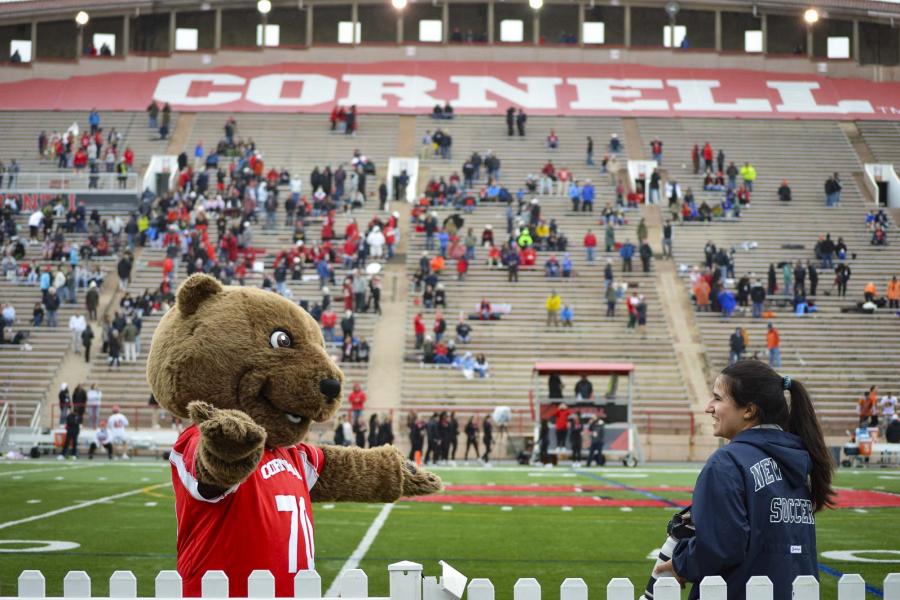
Who or what influenced your Cornell education the most?
One of the most significant influences on my Cornell education has been my twin brother, Alex, who is also a student in the College of Arts and Sciences. While our academic interests are quite disparate — he's a math and computer science double major — we managed to take a couple classes together. Sharing my undergraduate journey with him has been a profound source of support, especially during the height of the COVID pandemic when life on campus felt particularly isolating. Together, we navigated the challenges and triumphs of undergraduate life, offering each other guidance and encouragement along the way.
Every year, our faculty nominate graduating Arts & Sciences students to be featured as part of our Extraordinary Journeys series. Read more about the Class of 2024.


